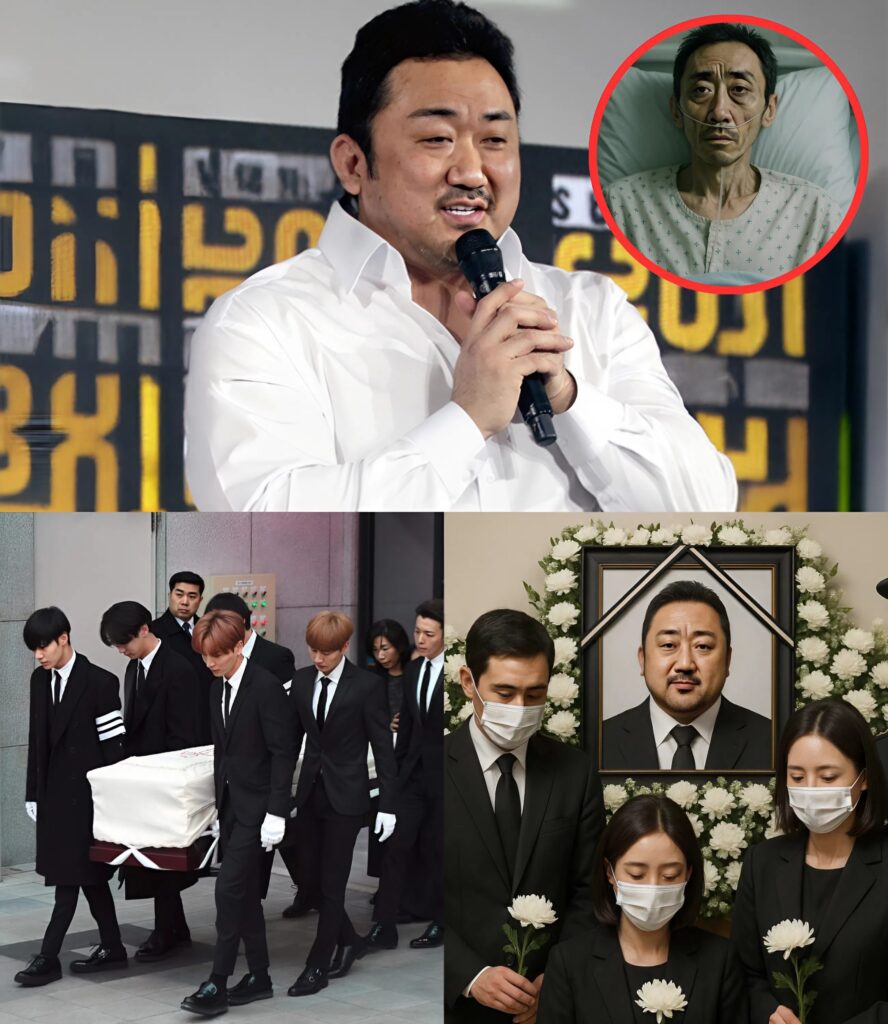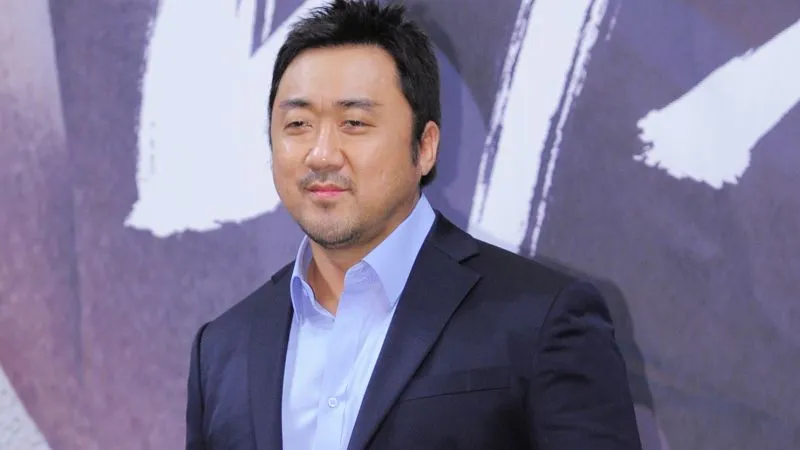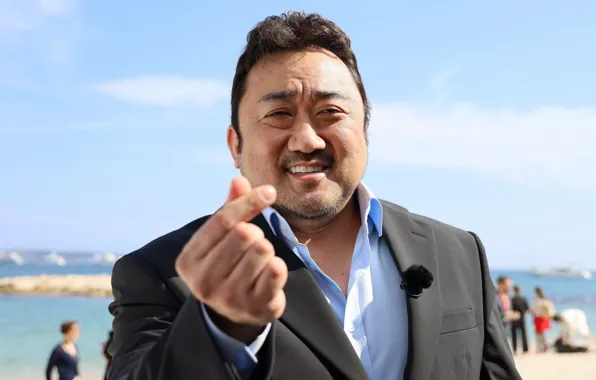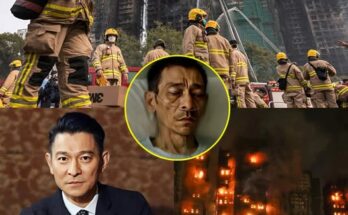The film world is in mourning. Just fifteen minutes ago, devastating news arrived from Seoul: Ma Dong-seok — internationally known as Don Lee — has tragically passed away at the age of 54. His wife, television personality Ye Jung-hwa, confirmed the news through tears, leaving fans across the globe shocked and heartbroken.
The announcement felt like an earthquake. For millions, Ma was more than just an actor; he was a cultural symbol of strength, kindness, and resilience. His sudden departure has sparked a wave of grief not only in South Korea but worldwide, where audiences had come to know and admire him through unforgettable roles in Train to Busan, The Outlaws, and Marvel’s Eternals.
But beyond the sorrow lies a deeper story — one about love, legacy, and the fragile line between stardom and humanity.

A Career That Defined an Era
Ma Dong-seok’s life journey was as unlikely as it was inspiring. Born in 1971 in Seoul, he later moved to the United States, where he discovered his passion for fitness and combat sports. Before stepping into film, he worked as a personal trainer for professional fighters, including UFC athletes. This background gave him the physical presence that would later become his signature on screen.
Yet early in his acting career, he was typecast into stereotypical roles: gangsters, bodyguards, and muscle-bound heavies. What could have been a career-limiting box soon became the foundation of his breakthrough. With his commanding frame, Ma injected unexpected warmth and humor into otherwise intimidating characters, creating performances that felt authentic rather than caricatured.
His role in Train to Busan (2016) marked a turning point. As Sang-hwa — the gruff but tender father-to-be who sacrifices himself during a zombie apocalypse — Ma captured hearts worldwide. Audiences wept not just for his bravery but for his humanity. It was a performance that reframed what an action hero could be: not invincible, but deeply human.
From there, his stardom skyrocketed. He anchored successful Korean franchises like The Outlaws, portraying gritty, streetwise detectives who embodied the frustrations and hopes of ordinary citizens. Hollywood eventually came calling, casting him as Gilgamesh in Eternals. For many international fans, this was their first introduction to Ma, and he quickly became a symbol of Korea’s growing influence in global cinema.
The Shock of Mortality
That is what makes today’s news so difficult to comprehend. Ma Dong-seok was seen as indestructible. On screen, he crushed enemies with his bare hands. Off screen, he projected health, vitality, and discipline.

His sudden death strips away the illusion of invincibility. It confronts fans with a painful truth: no matter how powerful the roles, no matter how strong the body, human life is fragile. Even the heroes we project our hopes onto cannot escape mortality.
This paradox is partly why grief has spread so quickly. Ma embodied a universal longing for protection and stability in a chaotic world. Losing him feels, symbolically, like losing a shield.
Ye Jung-hwa’s Devastating Announcement
The task of confirming this tragedy fell to his wife, Ye Jung-hwa. Her words, trembling and raw, carried a weight that official press releases could not.
Her grief reminds us that behind the public persona of a superstar was a private man — a husband whose daily life was filled not with cameras and scripts but with quiet moments of intimacy, humor, and care.
In that sense, her mourning echoes the universal experience of loss. Millions of fans grieve the actor, but she grieves the man.
Fans Around the World in Mourning
Within minutes of the announcement, social media platforms exploded with tributes. The hashtags #RIPMaDongSeok and #DonLeeForever trended globally.
In Seoul, fans gathered outside his management agency and movie theaters, leaving flowers, candles, and handwritten letters. Many invoked his role in Train to Busan. “You were our Sang-hwa,” one note read. “Strong, loving, selfless until the end.”
Internationally, the mourning was just as intense. In Los Angeles, where he had filmed Eternals, fans placed flowers at the gates of Marvel Studios. In Paris, posters of The Outlaws were adorned with black ribbons.
It is rare for a South Korean actor to achieve such universal recognition. That Ma did speaks not only to his talent but to his ability to transcend cultural barriers, embodying emotions that resonate everywhere.
Legacy Beyond Cinema
Ma Dong-seok’s legacy will not be confined to film reels. Colleagues describe him as a mentor who uplifted younger actors, an investor in small film projects, and a man who used his success to nurture rather than dominate.
He was also a philanthropist, quietly donating to causes related to children’s health and disability awareness. Unlike many celebrities, he did not publicize these efforts, preferring humility over headlines.
Ye Jung-hwa once described him as “a gentle giant,” noting how his intimidating exterior masked a playful, soft-hearted nature. That duality — the fighter and the nurturer, the giant and the gentle soul — is what made him so compelling both on and off screen.
A Symbol for Korea and the World
Ma’s death comes at a crucial juncture in South Korea’s cultural rise. Over the past decade, the nation has become a global cultural powerhouse, from K-pop to K-dramas to Oscar-winning films like Parasite. Ma was one of its most visible ambassadors to the West.
Film critic Han Ji-yeon reflected:
This bridging role was particularly significant for Asian masculinity in Hollywood. Too often portrayed as comedic, weak, or one-dimensional, Asian men have struggled for diverse representation on Western screens. Ma challenged that narrative. His roles emphasized not just physical power but emotional depth, offering a model of Asian masculinity that was strong, loving, and complex.
The Lessons of Loss
What, then, do we take from this tragedy?
First, that life is fragile. Fame, wealth, and strength cannot shield us from mortality. Ma’s passing reminds us that the time we have is finite — and that how we use it matters more than the accolades we earn.

Second, that love endures. Ye Jung-hwa’s grief is heartbreaking, but it also testifies to the power of shared humanity. Long after the applause fades, what remains is the intimacy of relationships.
Finally, that art outlives the artist. Though Ma Dong-seok is gone, his films remain, his characters continue to inspire, and his influence on both Korean and global cinema will echo for generations.
Conclusion: A Hero Remembered
At 54, Ma Dong-seok has left us too soon. His wife’s tears, his fans’ tributes, and the silence now hanging over the film industry all testify to the magnitude of this loss.
Yet even in grief, there is legacy. On screens around the world, his characters live on — defiant, loving, brave. In the memories of his wife and those who knew him best, his laughter and warmth remain.
The horrifying truth of death has silenced his voice, but it cannot silence what he gave to the world. Ma Dong-seok’s story is a reminder that true heroes are not defined by invincibility but by the love, strength, and humanity they leave behind.
For millions of fans, he will forever remain that hero.


